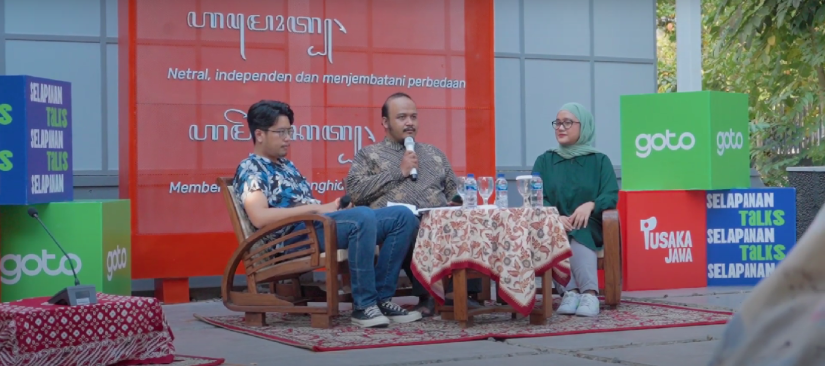
This article is based on Selapanan Talks #1
What do we really want?
That’s the big question uttered by the first speaker, Rudy Wiratama S.IP, M.A. as he opened the talk.
The discussion threw us into a deep contemplation about the notion of “home” and how it relates to our own personal desires. As we delved deeper into the topic, data on mental illness and suicide cases emerged, and we couldn’t help but wonder what is really going on in our society today.
To borrow Ranggawarsita’s term, we are living in the age of uncertainty, the age of doubt, also known as Kalulun Kalatidha. In such times, it becomes even more important for each one of us to be the first to convince ourselves of our own desires and to have a clear understanding of what we truly want in life.
Our second speaker, Salma Dias, shed light on how the social media universe has a significant impact on shaping our desires. Everything we want, everything we aspire to, is plastered all over the explore menu and timeline on our social media feed. However, sometimes we are blind to the fact that we might not really need what we want.
Through his presentation, our speaker Rudy Wiratama emphasized the point of self-control on the soul, as highlighted by Ki Ageng Suryomentaram. It is the soul that has a vital role in controlling our desires. But the question that arises is, how do we do it? How do we balance the influence of society and our own personal desires to achieve true fulfillment in life?
There are at least 4 stages to controlling our will:
1. Heneng (Silence for a moment)
2. Hening (Evaluate)
3. Awas (Identifying weaknesses)
4. Eling (Judging objectively & free from its demands)
In addition to the 4 points above, Salma Diah also added about the importance of hiatus from social media. This can be done by taking a break from social media for a certain amount of time. In addition, we also need to be fully focused when doing other activities. A simple example that we can do is to not bring our mobile phones while eating & sleeping.
If the above methods can be taken, then it is less likely that we will continue to be distracted by momentary desires.
Nevertheless, we can point back the question to ourself.
What do we really want?

